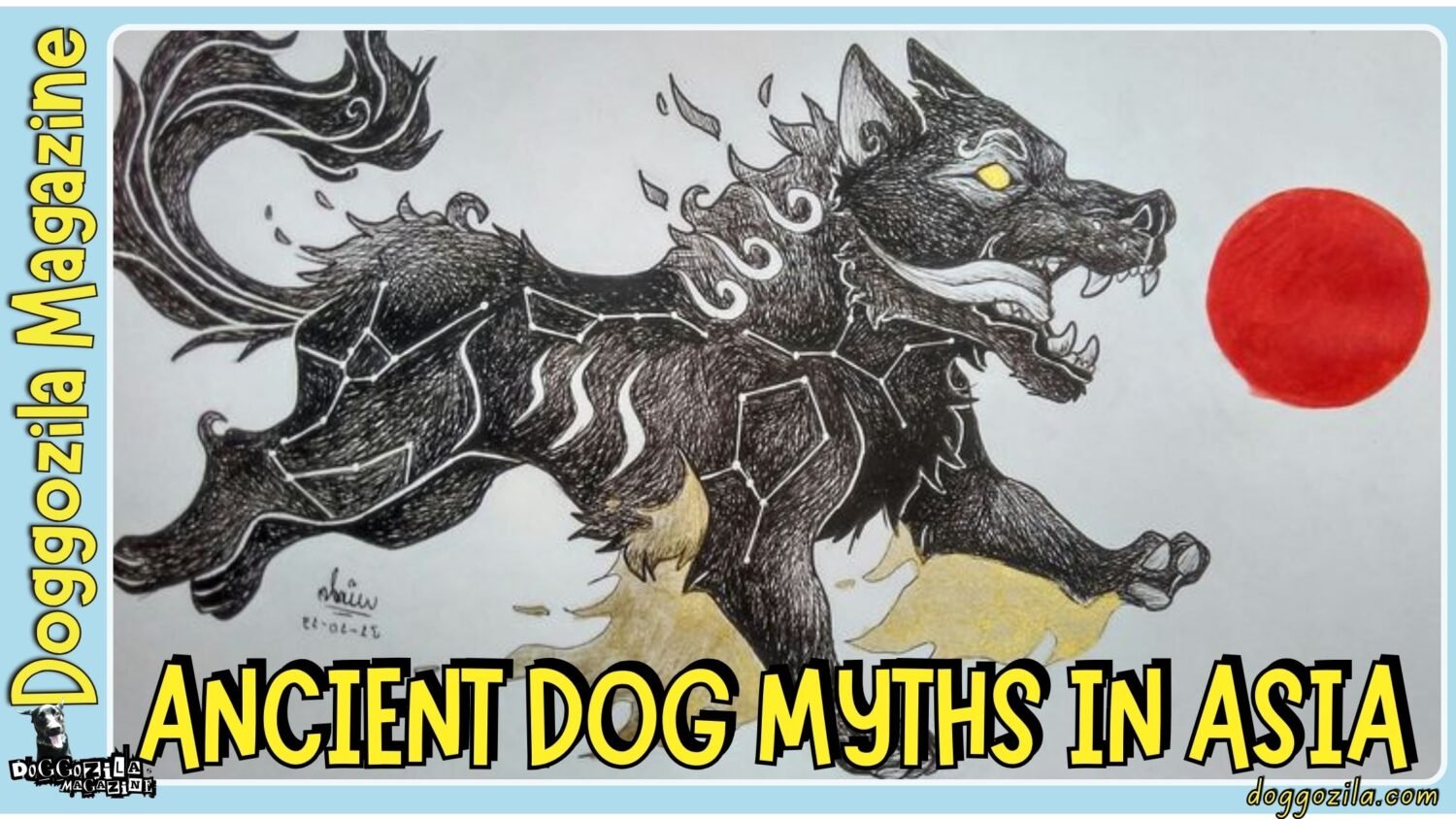Dogs have a peculiar habit that often raises eyebrows and elicits curiosity, just like sniffing each other’s rear ends. This behavior, though seemingly bizarre to us humans, is an essential part of dog communication. So, let’s find out together why do dogs sniff each other’s butts.
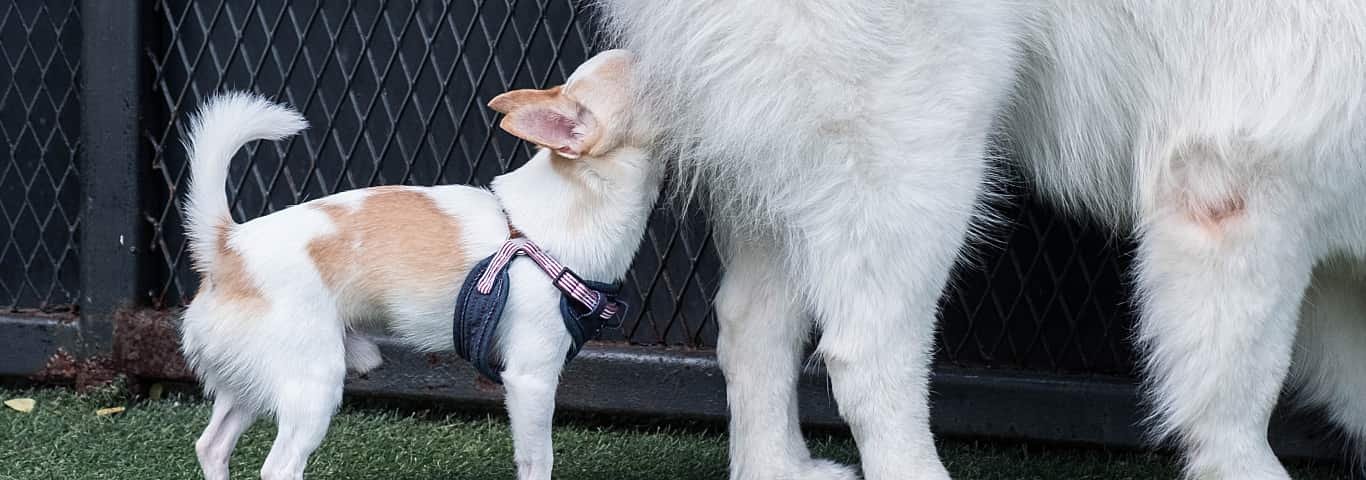
WHY DO DOGS SNIFF BUTTS?
In this extensive guide, we’ll delve into the world of why dogs engage in this peculiar behavior, what it means in their world, and the fascinating science behind it. We’ll explore the sensory world of dogs, their intricate communication system, and how understanding butt-sniffing can provide insights into their social dynamics and emotions.
The Curious Case of Butt-Sniffing
Butt-sniffing, though puzzling to humans, is an integral aspect of canine communication. Understanding why dogs do this can offer profound insights into their social interactions and emotions.
The Dog’s Extraordinary Sense of Smell
- Olfactory Receptors and Brain: Dogs got really great number of olfactory receptors. Their brain’s scent-processing regions are highly developed.
- The World Through a Dog’s Nose: Dogs experience everything in the world through their sense of smell from their nose. They detect an intricate tapestry of scents that we can’t even fathom.
The Dog Communication System
- Chemical Signals and Pheromones: Dogs communicate through chemical signals and pheromones. These scent cues convey essential information to other dogs.
- Tails, Ears, and Whiskers: In addition to scent, dogs use body language to communicate. The position of their tails, ears, and whiskers conveys emotions and intentions.
So, Why Do Dogs Sniff Butts?
- The Scent Identity Card: Dogs’ rear ends contain unique scent profiles. Butt-sniffing helps them identify and remember other dogs.
- Assessing Health and Mood: Scent contains information about a dog’s health and emotional state. Dogs can determine if another dog is ill or anxious.
- Establishing Hierarchy and Social Bonds: Butt-sniffing is a vital part of social bonding. It helps establish and reinforce hierarchical positions within a group.
The Butt-Sniffing Etiquette
- The Subtle Dance of Introductions: Butt-sniffing is a key element of dog-to-dog introductions. It’s a polite and non-confrontational way to gather information.
- Respect and Consent in Canine Communication: Dogs respect each other’s boundaries. They seek consent before engaging in social interactions.
Humans and Dogs: Bridging the Communication Gap
- How We Can Learn from Dogs: We can gain insights into non-verbal communication from dogs. Understanding their cues can improve our relationships with them.
- When Butt-Sniffing is a Concern: Occasionally, dogs may show inappropriate or excessive butt-sniffing behavior. Identifying when it’s a concern and addressing it appropriately.
- Common Misconceptions About Butt-Sniffing: Debunking common myths about this behavior. Separating fact from fiction to better understand canine communication.
Responding to Butt-Sniffing Behavior
- When to Allow It: Recognizing when it’s appropriate to allow butt-sniffing. Understanding its role in canine interactions.
- Managing Inappropriate Butt-Sniffing: Addressing excessive or intrusive butt-sniffing. Strategies to modify and manage the behavior.
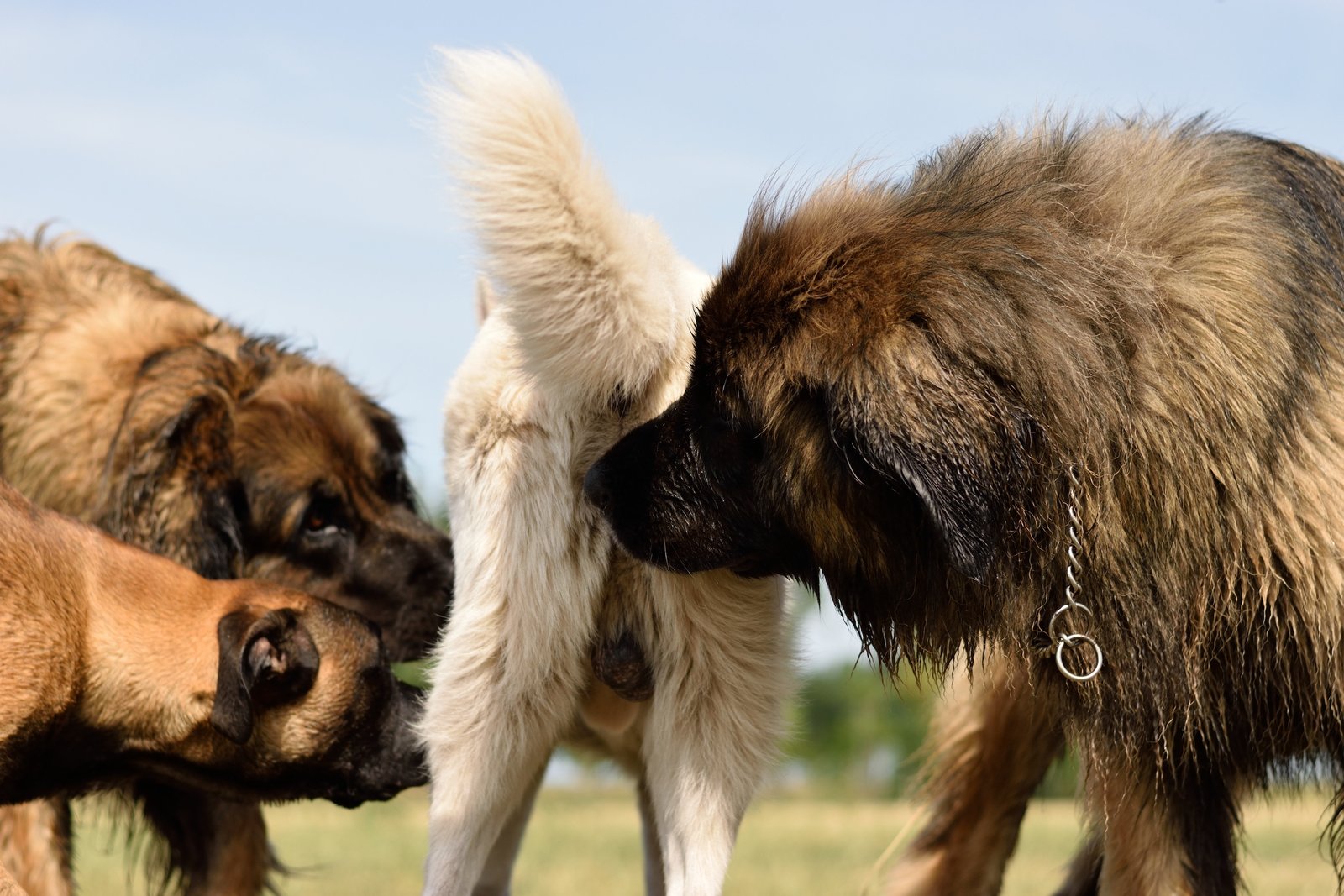
UNVEILING THE SECRETS OF DOG CONNECTION
The butt-sniffing is a fascinating aspect of canine communication, rooted in their extraordinary sense of smell and intricate social structure. By understanding this behavior, we can deepen our bond with dogs and bridge the communication gap that separates us.
Remember, dogs use their unique form of communication to build relationships and understand the world around them. As dog lovers, we can learn from their non-verbal cues and, in doing so, strengthen our connection with these remarkable animals.
Dogs Do Sniff Butts: Causes, Prevention, and Training
Dogs have an intriguing way of greeting each other through butt-sniffing, a behavior deeply rooted in their natural instincts and communication. While this behavior is generally considered normal, there are instances when it becomes inappropriate, embarrassing, or even problematic, especially in social situations with other dogs or humans.
Further in this guide, we will explore the phenomenon of inappropriate butt-sniffing in dogs, its underlying causes, potential consequences, and how to prevent and address this behavior through training and understanding. By delving into the world of canine communication and behavior, you can navigate this unique aspect of your furry friend’s interactions and ensure social harmony.
The Social Significance of Butt-Sniffing
Dogs rely heavily on their senses, particularly their olfactory sense, to understand and interact with the world around them. Butt-sniffing is a natural and instinctive behavior that serves as a form of communication among dogs. It allows them to gather vital information about each other’s identity, health, and emotional state.
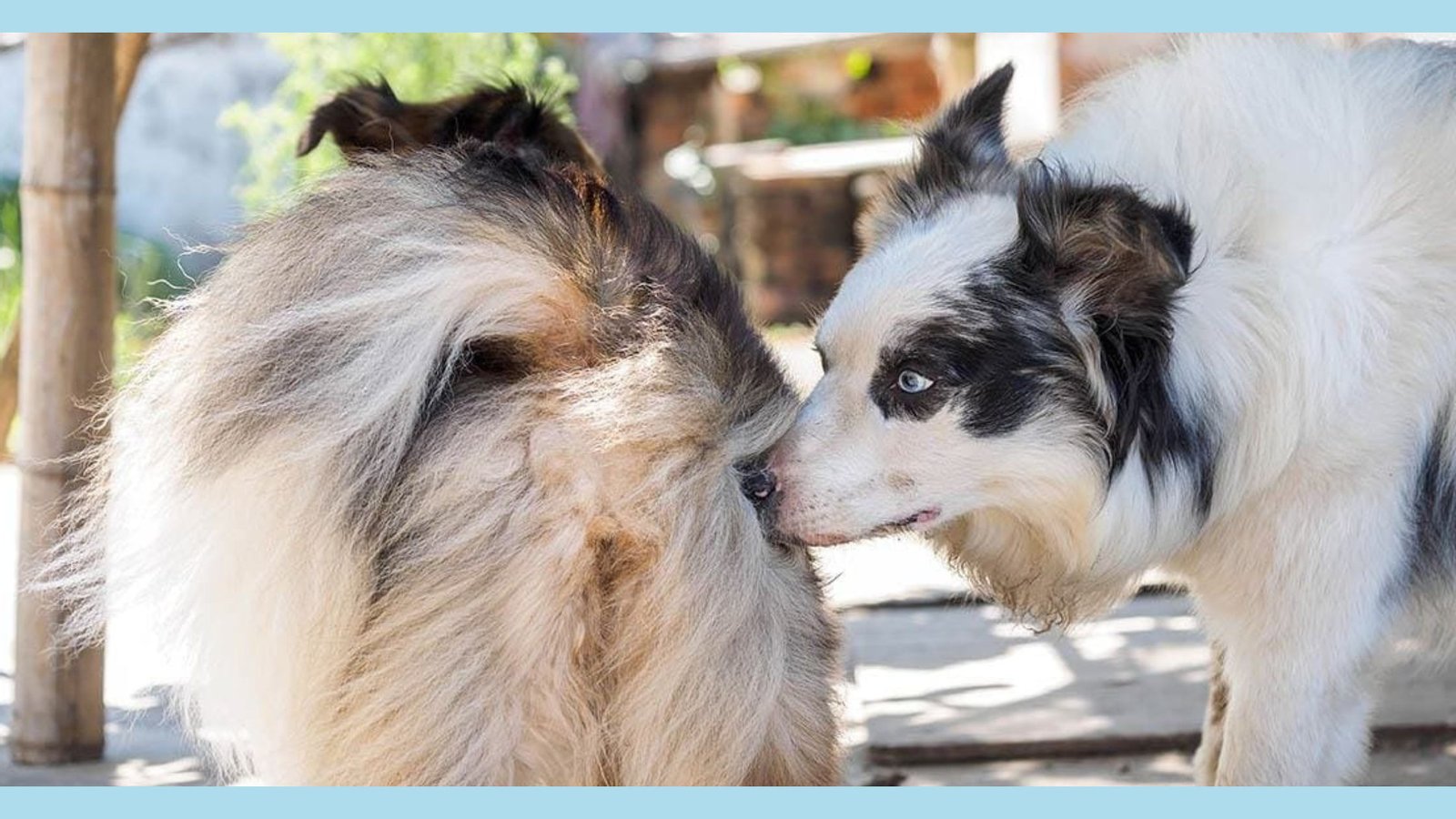
UNDERSTANDING NORMAL BUTT-SNIFFING
In the dog world, butt-sniffing is considered a polite and non-confrontational way of saying hello and exchanging information. Dogs possess specialized scent glands located near their anus, which produce a unique scent signature.
When one dog sniffs another’s rear end, they are essentially reading a dog “scent identity card,” learning about the individual’s gender, age, health, and even recent activities.
When Butt-Sniffing Becomes Inappropriate?
- Social Awkwardness with Humans: In some cases, dogs may extend their butt-sniffing tendencies to humans, leading to awkward situations. While this behavior is relatively harmless from a health perspective, it can be embarrassing or uncomfortable for human handlers.
- Aggression and Dominance Issues: Inappropriate butt-sniffing can sometimes escalate into dominance or aggression issues when one dog is overly assertive or intrusive. This can lead to conflicts between dogs.
- Health Concerns: In certain situations, butt-sniffing can pose health risks if one dog is carrying parasites or infections that can be transmitted to another through close contact.
Exploring the Causes of Inappropriate Butt-Sniffing
- Inadequate Socialization: Dogs that haven’t been properly socialized may struggle with appropriate interaction and may resort to excessive butt-sniffing.
- Territorial Behavior: In some cases, dogs may engage in inappropriate butt-sniffing as a territorial or dominance display, particularly in multi-pet households.
- Unwanted Attention-Seeking: Dogs might seek attention through inappropriate butt-sniffing, especially if they’ve learned that it triggers a response from humans.
- Medical and Health Factors: Unusual or excessive butt-sniffing may sometimes be linked to medical issues, such as anal gland problems or skin conditions.

THE CONSEQUENCES OF INAPPROPRIATE BUTT-SNIFFING
- Potential Conflicts with Other Dogs: Inappropriate butt-sniffing can lead to confrontations with other dogs, especially if one dog is overly assertive or intrusive.
- Social Embarrassment with Humans: When dogs exhibit this behavior toward humans, it can be embarrassing and uncomfortable for their owners or handlers.
- Health Risks and Concerns: In rare cases, there’s a risk of disease transmission if one dog carries parasites or infections that can be transmitted through close contact.
How to Prevent Inappropriate Moments When Dogs Sniff Butts?
- Early Socialization: Proper socialization is key to teaching dogs appropriate interactions. Early exposure to various people and dogs can help prevent awkward or unwanted behaviors.
- Positive Reinforcement Training: Utilizing positive reinforcement techniques can help redirect and modify the behavior. Training can teach dogs to engage in more socially acceptable greetings.
- Recognizing and Redirecting Behavior: Owners should be vigilant in recognizing signs of inappropriate butt-sniffing and redirect their dog’s attention before it becomes problematic.
Training and Addressing Inappropriate Dogs That Sniff Butts
- Positive Reinforcement Techniques: Positive reinforcement-based training can be effective in addressing this behavior. Rewarding your dog for appropriate greetings can encourage more desirable interactions.
- Seeking Professional Assistance: If the behavior persists or escalates to aggression, consulting a professional dog trainer or behaviorist is advisable.
Common Misconceptions About Why Dogs Sniff Butts
It’s important to debunk common misconceptions surrounding this behavior to better understand the social dynamics of dogs and prevent undue concern. While butt-sniffing might be perplexing or even embarrassing for humans, it’s an integral part of dog communication. Understanding when and why it can become inappropriate and how to address it is crucial for maintaining social harmony and a positive relationship between dogs and their human companions.
By employing effective training and prevention techniques, it’s possible to navigate the complex world of dog social behavior and ensure that butt-sniffing remains a polite and non-confrontational form of communication in your dog’s interactions with other dogs and humans.
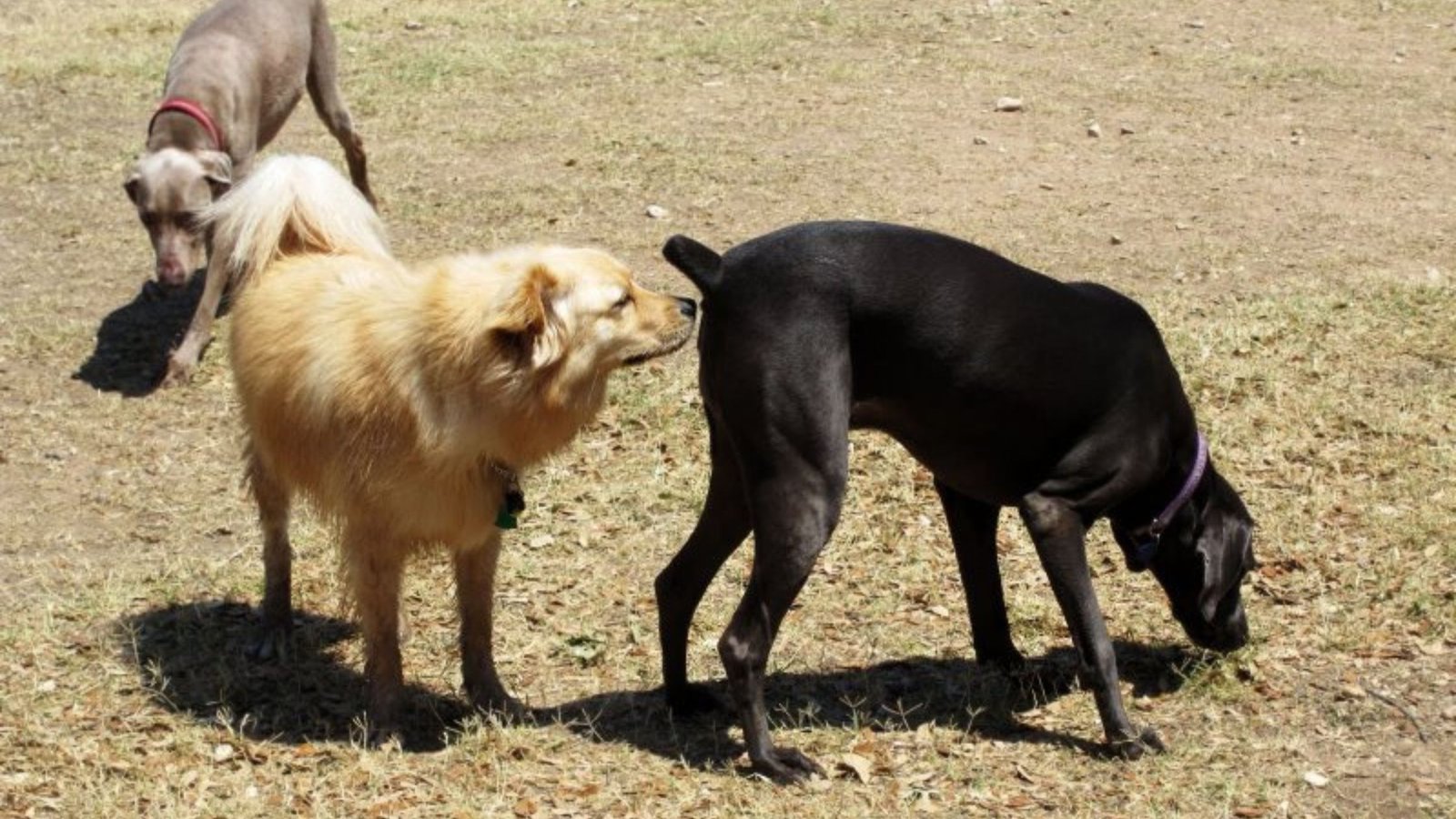
5 MOST ASKED QUESTIONS ANSWERED BY EXPERT VETERINARIANS
These are the most asked questions by dog owners and they address the cross-species comparisons, health implications, biochemical variations, and dietary impacts. Find out what the expert are saying.
Yes, excessive or obsessive sniffing can sometimes signal underlying health issues. For example, if a dog is excessively sniffing other dogs or itself, it could indicate problems like anal gland impaction, skin infections, or dietary imbalances. Additionally, sudden changes in sniffing behavior might reflect stress or anxiety, requiring veterinary attention.
Research has shown that anal sac secretions differ between male and female dogs. Studies using gas chromatography–mass spectrometry have identified distinct chemical compounds in these secretions, with some compounds being unique to males or females. Additionally, each dog has a unique scent profile, allowing for individual identification through smell.
Yes, many animals engage in similar behaviors. For instance, hyenas and cats use scent glands for communication, and some species rely on bacteria in these glands to produce unique chemical signals. Even humans have a vestigial vomeronasal organ, though it is not functional in the same way as in dogs.
Yes, a dog’s diet can influence the smell of its anal gland secretions. Certain foods may alter the chemical composition of these secretions, making them more or less distinctive. For example, diets high in fish or specific proteins can intensify the odor, which may affect how other dogs perceive them during interactions.
Yes, cats also engage in rear-end sniffing behavior. Similar to dogs, cats possess anal glands that release unique scents containing information about their identity, sex, and reproductive status. This behavior helps cats recognize familiar individuals, assess potential mates, and communicate social information.
We recommend to learn more about the sniffing dogs or more known as the Detection dogs!









